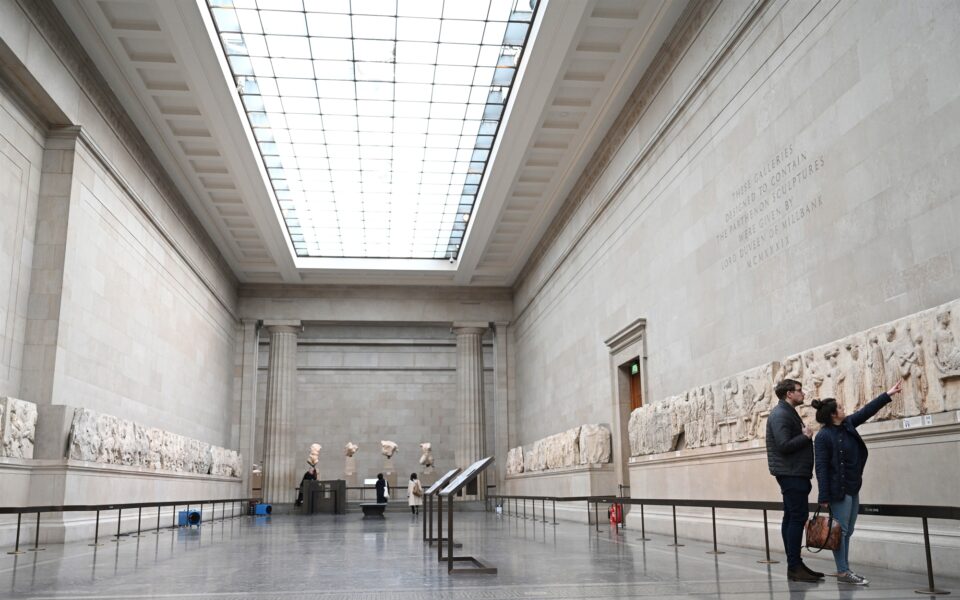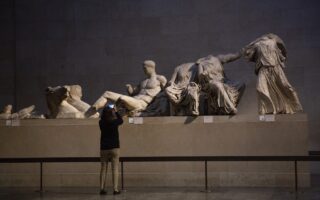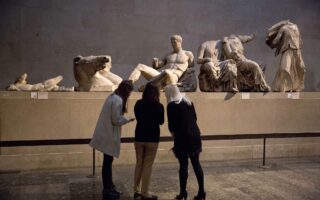The Parthenon Marbles and democracy

There is indeed a basis to the opposition’s fear that the government will use a possible return of the Parthenon Marbles to Greece in its pre-election campaign to garner votes. They would be stupid not to. Wouldn’t the other political parties do likewise if they were in power? Despite the fact that the campaign for their return began in the 1980s, what will eventually remain in the public’s mind is the moment the national goal is achieved.
If the marbles eventually return on chartered flights, there would be a huge celebration. We don’t know if we’ll greet them with the honors reserved for visiting heads of state – or if we will keep all that fanfare just for the “Holy Light” which arrives each Orthodox Easter from Jerusalem – but the ritual will be the same. A lineup of soldiers, blaring bands, a little speech on the runway and all the associated razzmatazz.
Although we cannot be certain about the government’s possible intensions, we can surmise that Premier Kyriakos Mitsotakis – like any prime minister – would like any return to happen before the next general elections. Let’s not forget that 20 years ago a camera caught an informal conversation between then socialist premier Costas Simitis with his British counterpart Tony Blair. “Tony, I would like to discuss the marbles with you… as you know we have elections next year in Greece. Maybe this could be useful,” Simitis was heard saying in a clip from the sidelines of the European Union summit in October 2003.
‘Tony, I would like to discuss the marbles with you… as you know we have elections next year in Greece. Maybe this could be useful’
There’s nothing bad with this. All governments try to get re-elected and all opposition parties to be elected. Democracy is not a game based on the good intentions of good people. It works with the competing interests of players, regardless of whether they are good or bad. It also doesn’t matter if they do it for the country, to have their name in the history books or to win votes. The result is what counts, and if the Parthenon Marbles come back to Greece that will be good for the country, regardless of who will reap the benefit in the polls.
Of course, the usurpation of votes is extremely precarious. This is obvious from the relationship of the modern Greeks with antiquity. We invoke it only to show that we come from mighty ancestors: According to a Pew Research poll from 2018, 89% of Greeks are apparently convinced of the superiority of Greek culture. I wonder how many Greeks have actually visited the Acropolis voluntarily (apart from the mandatory school trips)?
Finally, we must also remember that the Simitis administration achieved major national goals – such as Cyprus’ entrance into the EU – but the trends for the 2004 elections had long been formed (and PASOK lost to New Democracy). Therefore, we can predict with relative certainty that the positive impact from the return of the marbles for the ruling conservatives will be commensurate with the negative impact of the wiretapping scandal. That means close to zero.




